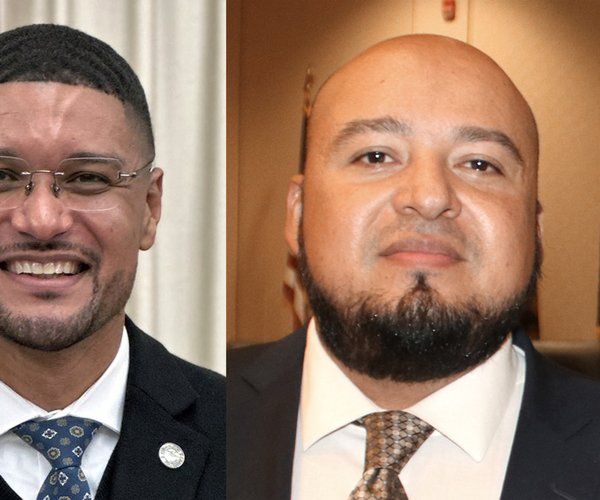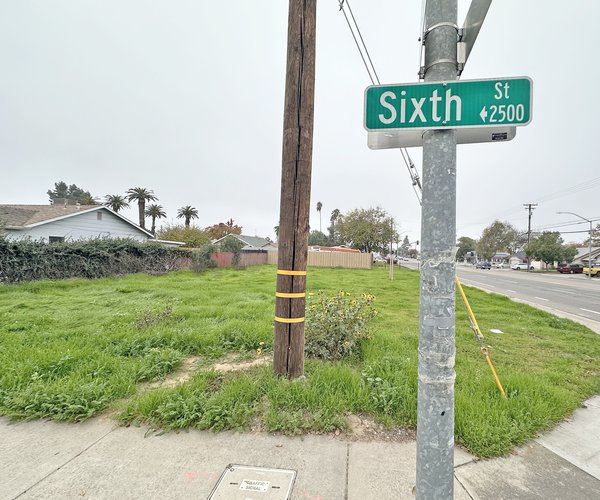The Ceres City Council continued to experience fallout on Monday evening from the scandal that broke this month alleging that Ceres police officers used cameras to secretly and inappropriately record female employees.
John X. Mataka, president of the Grayson Neighborhood Council, said he was disturbed to read about possible issues with cameras being used to record female employees and called for a third and independent investigator.
Mataka said that the District Attorney's office was notified over the summer months about the alleged misconduct but stated that prosecutors could not establish that a crime occurred based on information supplied by the Ceres Police Department during an internal investigation.
"This investigation should be conducted by an independent third party, mostly likely the Attorney General's office, to determine whether the Privacy Act of 1993 has been violated," Mataka told the City Council. "Allowing the Ceres Police Department or the District Attorney's office investigate this issue is like having the fox guard the hen house."
Rumors about male city Ceres Public Safety Department employees placing video cameras under a female worker's desk and changing rooms were brought to light before the Sept. 8 City Council meeting by representatives of the National Association for the Advancement of Colored Persons (NAACP).
The city later stated issued a press released stating that the "Ceres Police Department recently conducted, or is in the process of conducting, two separate internal affairs investigations." A city press release indicated that the first case was initiated in October 2013 and the city took corrective action. The second investigation was initiated in May and is ongoing.
City Manager Toby Wells said on Monday that the allegation about cameras underneath a desk are not true, adding that he is frustrated about not being able to set the record straight and separate rumor from fact.
City Attorney Mike Lyions said the city cannot public talk about the allegations because they involve confidential employee matters.
Meanwhile, Mataka chastised the city and stated it has opened itself up to lawsuits. He said the Police Officers Bill of Rights law allows "police who break the law to hide from releasing information that would bring them to justice."
"While cameras can be used legally in business settings, there are legal limits on where cameras can be placed, as well as notice requirements," said Mataka. "Privacy protection laws forbid cameras and recording devices in the restrooms, changing rooms, break rooms. Employers who exceed these limits could be violating state and federal wiretapping laws. If employees are not notified of cameras or recording devices being used, employers are opening themselves up for an invasion of privacy, harassment and discrimination lawsuits."
Monica Ventura of the NAACP took the podium and criticized the city, noting that while Wells stated he would not respond to rumor, the city did respond that investigations took place.
"This has caused some confusion. First, I was under the impression that these were rumors and that rumors wouldn't be responded to yet it's something that was known about since October of last year," said Ventura. "In three days it went from rumor to this has been happening since last year. What's with the cover-up?"
She suggested the city has not protected the victims.
"The offender should not be in a position to where they have access to the victims."
She also took Lyions to task for his statement to the Courier that the NAACP's allegations were "half-truths" and added "they don't have it right."
"That statement is meant to try and save face and is ridiculous," said Ventura. "Whether you want to nitpick the definition of a desk is petty. We know the cameras were under surfaces with a chair, whether it's a desk, a dining table, a picnic table, a coffee table - it makes no difference. It's the same crime. Nor does it make a difference if it was in a changing room or a room or a place that was known where a woman was changing. It's still a perverted act."
Ventura added that a camera was in a room in which the victim felt comfortable enough to change in.
Frank Johnson, president of the local chapter of the NAACP, charged that the city should have protected the female victims by placing them on paid administrative leave.





